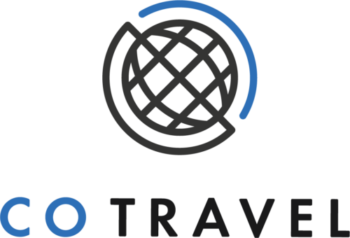Flying under Level 2 will be very different to how it was before. Please ensure that you have the relevant health declaration document; that you have done your online check-in prior to departure and have a digital boarding pass to scan with a valid ID.
Other than carrying the correct documentation, you will have to pass a temperature screening (passengers who have a 37.2 degree temperature or higher will not be permitted entrance) to enter the airport and wear your face mask at all times. New rules apply to checked luggage, physical distancing of 1,5m; allow time for security checks and safety measures onboard your flight. Please do not travel if you suspect you are ill or have flu-like symptoms.
Domestic airports that are open and have resumed operations are: OR Tambo International, Cape Town International, King Shaka International, Bram Fischer International, Port Elizabeth International, East London Airport, George Airport, Kruger Mpumalanga International Airport, Kimberley Airport and Lanseria Airport.
Strict Safety Protocols at Airport
Strict safety protocols must be adhered to during travel – at the airport and onboard your flight. Expect no-touch contact, mobile boarding passes and temperature checks to become the norm.
Here’s what to expect at the airport:
- Upon arriving at the airport, passengers must use drop-and-go facilities or public transport/transfers as only passengers will be allowed into the terminal.
- Limited parkade options will be available and will be signposted at each terminal.
- Meet & greets will not be allowed in the terminal building.
- Baggage wrapping is now compulsory for check-in luggage for hygiene reasons.
- Several access points have been closed at each airport. Please visit the Airports Company website for details on which access points and terminal entrance points should be used.
- Place all loose items into your hand luggage including items that contain metal such as belts.
- If you trigger the metal detector, no pat downs will take place and you will be sent back to re-divest all loose items which may include shoes.
- You will be required to scan your own boarding cards.
- For the flights that require passengers to transfer via busses from the boarding gate to the aircraft or aircraft to the arrival’s terminal, these will operate at only 70% capacity and will be cleaned and disinfected after every trip.
Travel Tips for Business Travellers
There are a few things you can do to be a responsible traveller during this time.
- Firstly, don’t fly if you are feeling ill as you will not only increase your chances of contracting the virus, but you may also put other people at risk.
- Check-in online and download your mobile boarding pass to limit the number of exchanges you make with others.
- Arrive two hours before the flight to avoid possible delays at the entrance
- Complete your health document and print it out prior to arrival at the airport saves you time of filling it out outside the entrance
- Wear your face mask at all times – at the airport and while travelling.
- Wash your hands regularly. This is one of your best defences against the virus.
- Use an alcohol-based hand sanitiser (keep a travel-sized bottle with you at all times – less than 100ml).
- Maintain physical distance at the airport and onboard your flight.
- Plan for delays. Due to safety screenings and new check-in, security and boarding processes, it’s best to arrive at the airport well before your flight to avoid missed departures.
Safety Measures Onboard
Operating airlines have announced several safety measures they are undertaking to protect passengers and crew, including:
- Screening all staff and passengers
- Compulsory wearing of masks throughout flights
- Self-scanning of documents
- No catering and no magazines to avoid contact
- Sterile aircraft cabins, re-sterilised between flights
- Reduced passenger movement during flights
- Staggered boarding procedures
Aircrafts are equipped with High Efficient Particulate Air Filters (HEPA), like those used in hospital operating theatres, which are effective at blocking 99,97% of particulates. These filters help to continually sterilise the air in the cabins, which is renewed entirely every three minutes. You can find more information about HEPA here.
What About Social Distancing on the Flight?
Mango has said it will strategically seat passengers onboard to maintain social distancing and hygiene practices, with exceptions made for guests that are travelling together. Similarly, FlySafair has said it will fill window and aisle seats before allocating passengers to the middle seat. However, middle seats will not be blocked automatically. Passengers may opt to block the seat at an additional fee.


